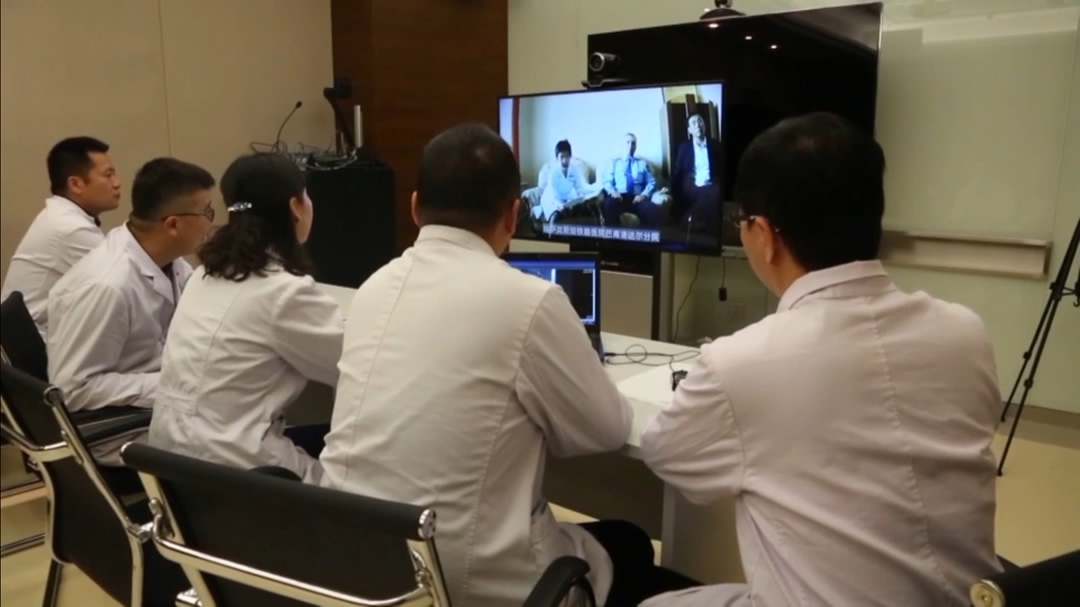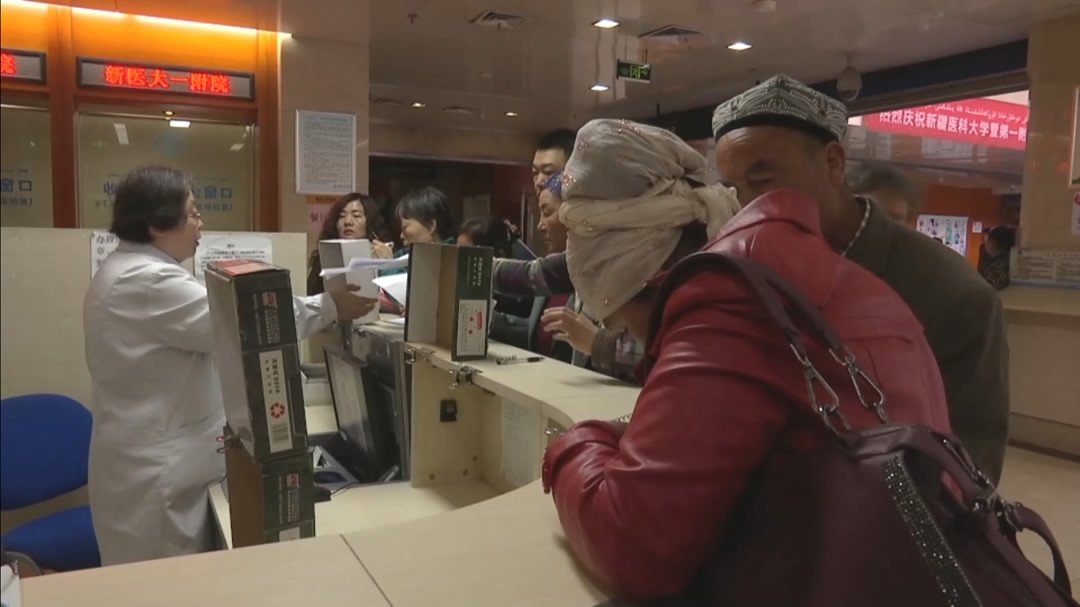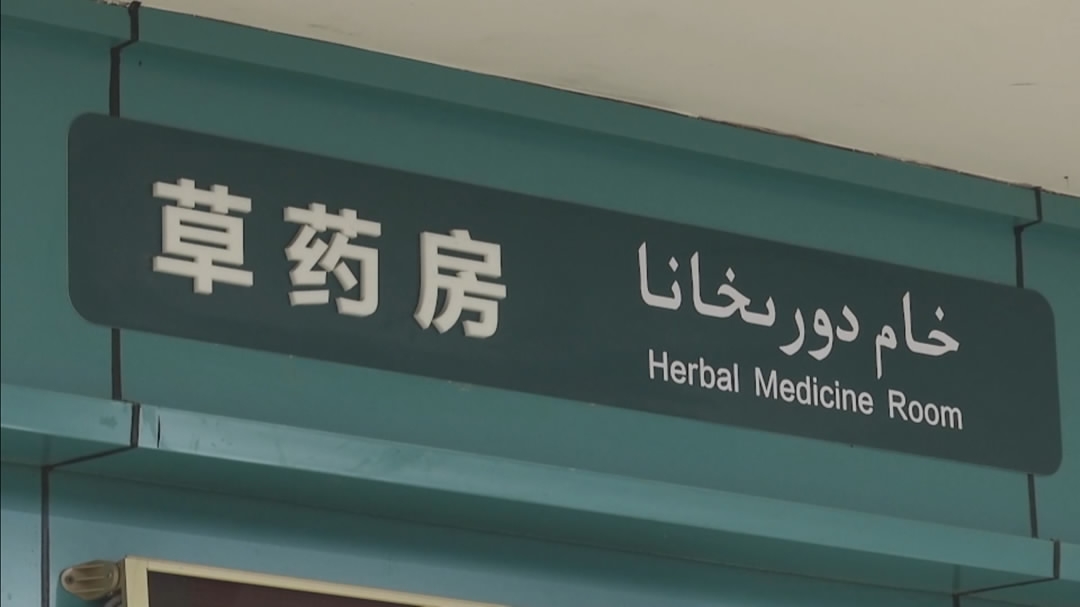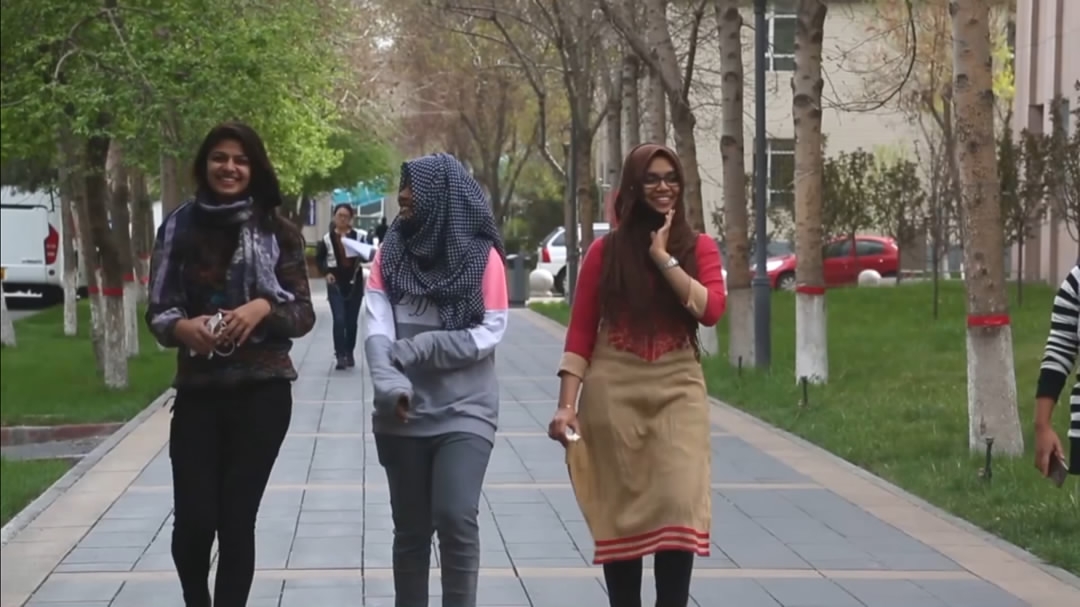Story by CGTN's Zheng Yibing
In China’s Xinjiang Uygur Autonomous Region, cross-border medical cooperation is on the rise, benefiting citizens of several Chinese neighbor countries. Dozens of hospitals in Xinjiang, especially in its capital city, Urumqi, are receiving international patients, and seeking to promote medical skills and knowledge in the region.

China’s Xinjiang Uygur Autonomous Region has established cross-border medical consultation platform with 24 hospitals in China’s neighboring countries like Kazakhstan, Kyrgyzstan and Georgia. /CGTN Photo
Dr. Wang Ying and her colleagues in the hospital are checking a patient with spinal disease some 1,000 kilometers away in Kazakhstan through cross-border consultation.
She said the consultation will help detect the real cause of the disease, and then decide whether there is a need for the patient to come to China for treatment.

Over 15,000 international patients have come to Xinjiang, especially to the capital cityUrumqi to find treatment for their diseases during the past three years. /CGTN Photo
This hospital is also practicing Western medicine, and now has regular patients visiting from neighboring countries, including Kazakhstan, Kyrgyzstan, and Tajikistan.
Besides Western methods, hospitals in Urumqi also use traditional Chinese and Uygur medicine. These options are available for patients from neighboring countries seeking the best treatment.

In an Uyghur hospital in Urumqi, captions with at least three languages are spotted. /CGTN Photo
With a combination of medical approaches, dozens of hospitals across Xinjiang have treated over 15,000 people from central Asia, Russia, Turkey, and Pakistan in the past three years.
Officials here say China and neighboring countries are committed to expanding their efforts even further.
Peng Long, deputy director of Xinjiang Hearth and Family planning commission, said that the countries along the Silk Road conduct a health forum every year to increase understanding, and medical staff from China would also go outside for exchange and cooperation.
For Wang Ying, cross-border medical cooperation also means spreading knowledge and skills overseas.

Xinjiang Medical University recruits at least 300 international students for medical studies and exchanges. /CGTN Photo
In the university her hospital is attached to, there are over 300 international students annually, and their numbers are increasing.
These students say after graduation, they plan to go back home, to serve the people in their own country, armed with the medical expertise acquired here in Xinjiang.
2412km










